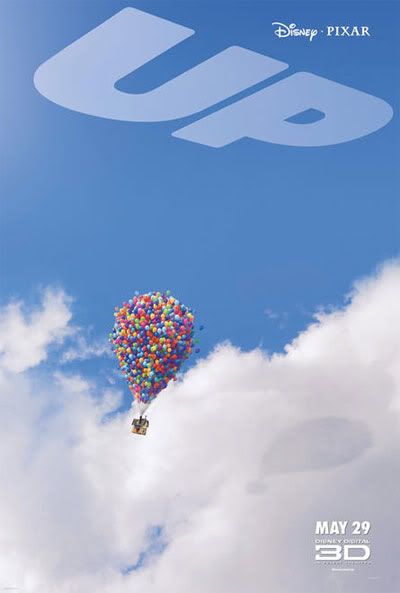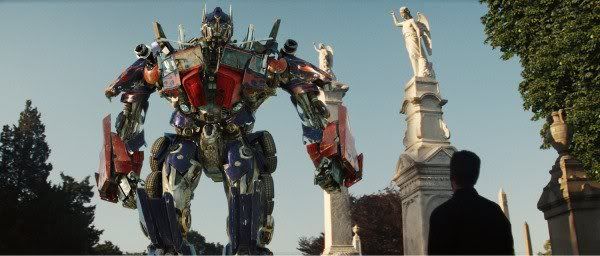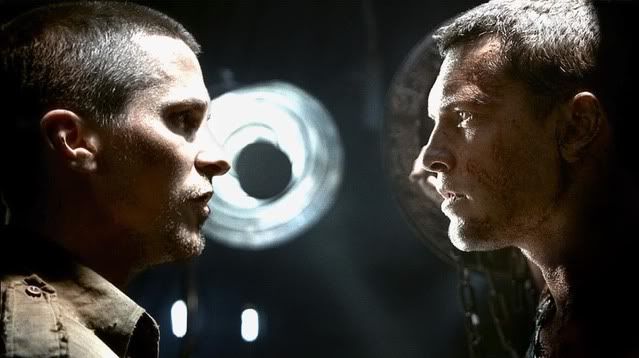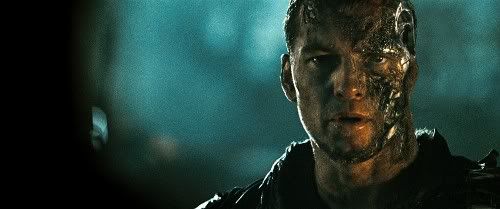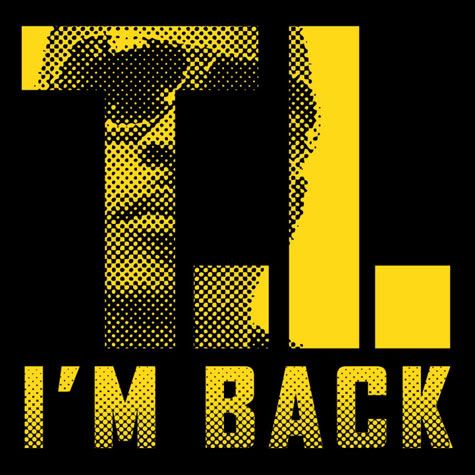Well, if you have read the
official OGCF* review of Revenge Of The Fallen, you will now that I enjoyed the film but criticized the sequel's ambition to, "
make an already huge film bigger". The day after watching the the film I went to see it again (unwillingly) with a few friends. I thought to myself that since I had already seen the film once before, I might as well not scrutinize it this time and to just make it through the almost 3-hour length of the movie. However by turning off the inner-cynic in me, I stumbled upon the spirit and true nature of the movie that I feel I did not properly explain in my review.
To put it in simple terms: I had a lot more fun when I turned my brain off.
And who wouldn't? The visceral thrill ride of seeing colossal alien robots rip each other apart is nothing short of awesome. But as I was watching the film the second time, I realized that that was the
only part of the movie I was enjoying. Everything that had to do with the humans was sorely lacking: the dialogue, the acting, the chemistry between the actors, and more.
I was recently able to watch the original
Transformers movie back from 2007 and I must say that I was enjoying the original much more compared to the sequel. Then I was able to understand why: it is a
completely different movie.
While
Transformers could be classified as more of an epic and family-friendly action/adventure movie,
Revenge Of The Fallen tends to drift more towards the straight-forward popcorn action flick. In a nutshell, the first movie was
Star Trek and the second movie is
Wanted.
The first movie also had a very Spielberg vibe to it, with the relationship between Sam and Bumblebee being one of the more central themes. Also in
Revenge Of The Fallen, the action sequences take up about 2/3 of the sequel's substantial length. In
Transformers the action only really ramps up once the Autobots and the Decepticons catch up with Sam and discover that he possess his grandfather's glasses--or about 1 hour into the movie's two hour length. And even then, the original gives viewers the opportunity to breathe by filling in some missing plot details.
The main issue with the pace of the second film is not really because of the number of action sequences, but instead revolves around the whirlwind nature of the plot itself. The movie opens with the Autobots hunting a rampaging Decepticon in Shanghai, then moves to Sam leaving home for college, then goes on to Captain Lennox describing his gratitude towards the Autobots only to have some politician butt heads over whether or not the Autobots are actually provoking all of this destruction around the world from Decepticons. Up until this point, the sequel remains in a similar spirit as
Transformers, but then plotlines being to fade as Sam's life entangles with the struggle between the Autobots and the Decepticons.
The only scene where
Revenge Of The Fallen is able to reach the original film's quality is the thrilling action and powerful emotions shown in the forest fight scene, where Optimus Prime goes head to head with 3 Decepticons--and dies protecting Sam from them. Of course, Optimus is resurrected by the end of the movie but it was truly shocking to see the leader of the Autobots fall to the hands of the Decepticons--and more specifically, the sinister Megatron.
That forest fight scene reaches the same brilliant heights as when Bumblebee was captured by the now-disengaged Sector 7 in
Transformers--compelling drama, captivating action, and skillful direction. Of course
Transformers was nothing close to an Oscar nominee, but it was a fun Summer blockbuster that had a story smart enough to keep the audience interested.
Especially after rewatching the first movie it can easily be said that
Revenge Of The Fallen not only pales in comparison, but is an embarrassment for anyone involved. The sequel begins well but soon devolves into a hard to follow, mindless action romp that does not even deserve to share the first movie's name. The action is still fun, but the significant decrease in the plot's quality is the biggest failure of the movie.
Whether or not my and another 157 other critics' reviews (and thousands more online) made even the slightest difference on the estimated $201 million earnings of the movie since Wednesday, I myself did not enjoy the movie--not the first time, and not the second time--but it is simply my own opinion. Isn't that what all reviews are?
=============================================================
"One Giant Afterthought" is a feature article I will write everytime I may revisit
something I previously reviewed. Whether it be music, movie, television, books, or
the local sheep sacrifices, if I look at it again it will get an afterthought.
==============================================================






